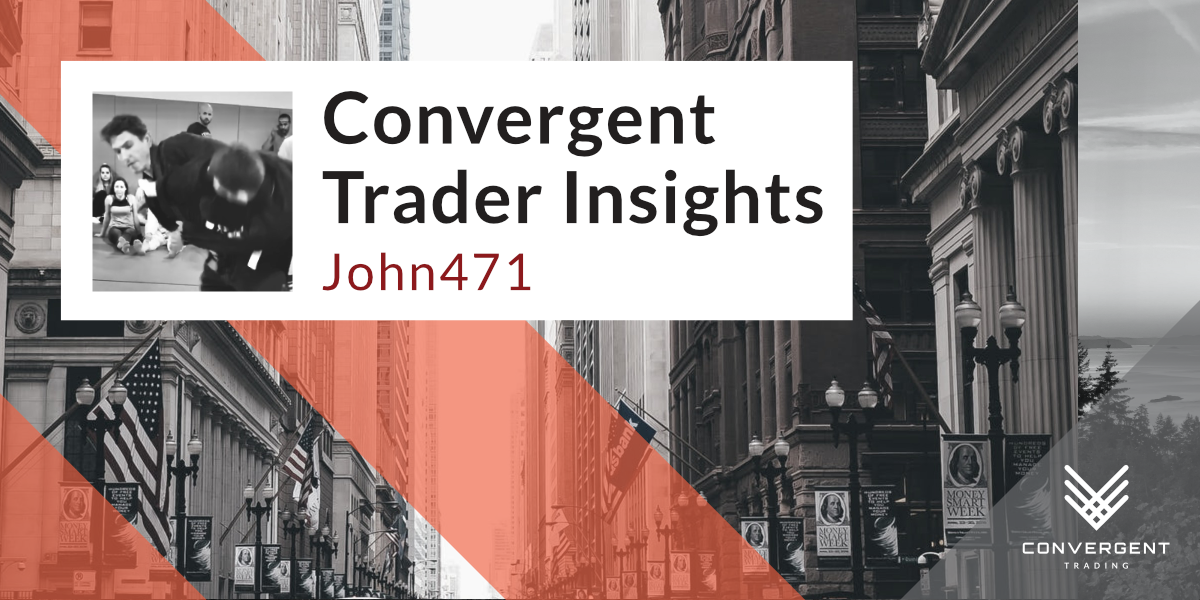Becoming a Great Risk Manager w/ John471
Becoming a Great Risk Manager
One thing we have discussed quite a bit here at Convergent is how variable the opportunity (and risk) is from day to day in this business. The market can easily go from a clear, easily moving trade that hands you your favorite setups regularly, to a boring, tricky, choppy mess that leaves you questioning everything about yourself and your chosen career path. You may have heard me remark that on days like that, it is important to be a great Risk Manager.
So, what does being a great Risk Manager actually mean? Here are my key points for superior risk management:
Know Your System and Your Edge
Knowing your best and strongest trades, and under what circumstances they may or may not show up, is key to your development. Your best trades are often not the ones that show up the most, but often are the ones with the best R-Factor (R:R Ratio), clearest signal, and it’s easiest to know when you’re wrong. These trades may not offer the tightest stop because the stoploss is probably based on a price level derived from market structure, i.e., a key inflection point for the day. But, if they work, they capture your key idea for the day. These are core to your system, and when the market is difficult, you should focus only on these.
Know Your Expectations for the Day
Did we just have a huge move and are opening in range, with low ON range and volume? Or has range tightened for 2 weeks straight and suddenly we are opening gap lower 20 points, beyond a key reference? These two circumstances foreshadow two very different likelihoods for what a day may give us. It is important to know the difference. It is important to know if this is a day that will likely give you multiple setups, and the chance to come back if you take an early stop, or is this a day that is very unlikely to have any real movement, and an early stop could be an indication that the market is not moving in a way that is comfortable to you? Learning to differentiate and react accordingly is a key trading skill.
Know Yourself
What are you bringing into the day? Are you on a streak…is this something that has affected you in the past? Did you hit your Daily Loss Limit (DLL) yesterday? Did you have your best day ever yesterday? The emotion that can arise from these conditions affects the way we perceive the market in real time. It is important to be aware of this effect and to know if you are trading an emotion or desire, versus trading a setup/price action. Most of our major trading setbacks don’t come from poor market action, but from trading based on our desires rather than strategic setups/price action.
Don’t Be “That Guy”
– John P. (@John471, ES Market Maven at Convergent Trading)

